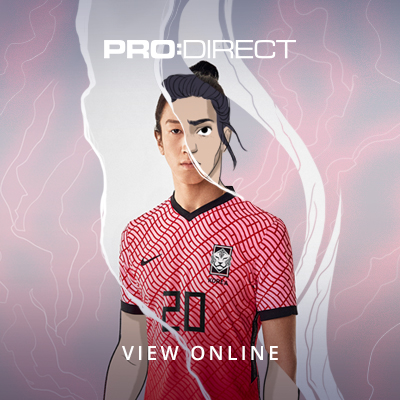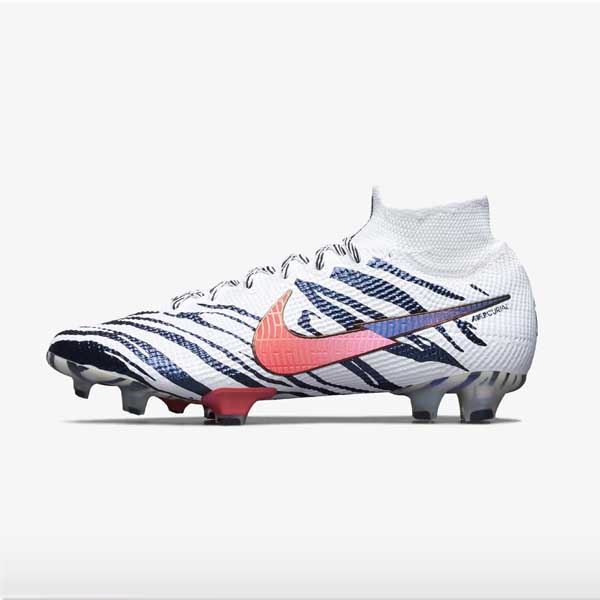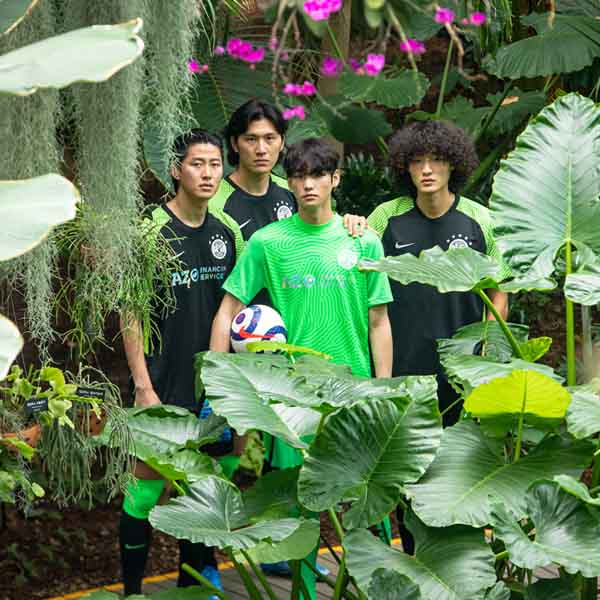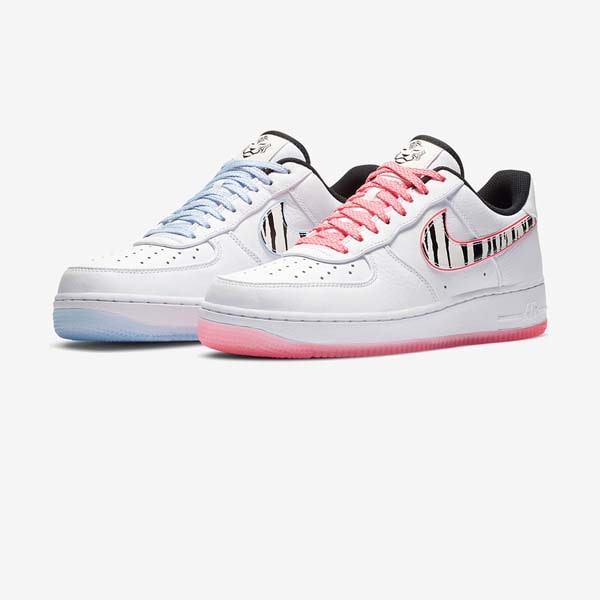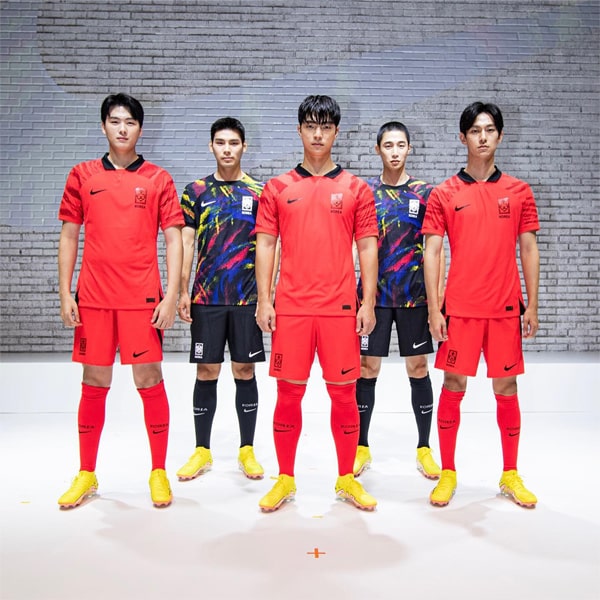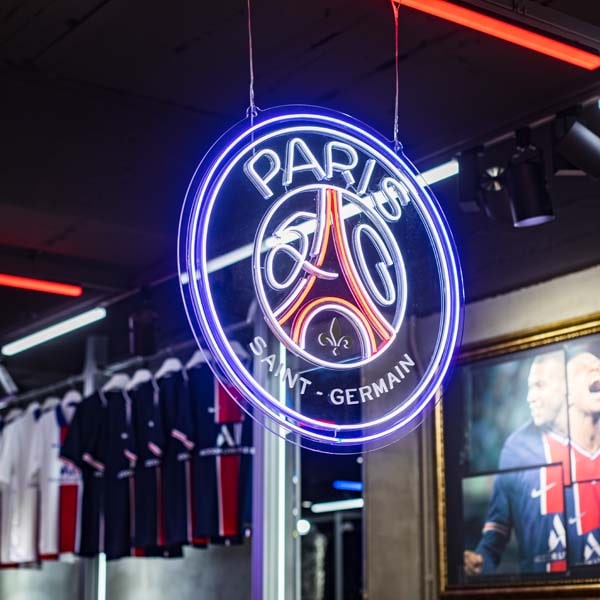South Korea have become the latest Nike team to be plucked from their plethora of nations and elevated to the brand’s highest statement level of design and creativity; a position previously occupied exclusively by Nigeria. But after the raging success of the 2018 Nigeria collection, how did the Swoosh settle on South Korea of all teams as the next in line?
In 2018, Nike blessed Nigeria with one of the most strikingly unique and universally appreciated kits and accompanying apparel collections of all time, stealing the show at the 2018 World Cup. Both the kit and the wider lifestyle collection instantly gained mass approval, indicated by a record Three million people trying to pre-order it from Nike. Yes, three million.
Roll the clock forward 24 months and Nike have expanded their creative approach to football kit design, following news that they are moving away from the standardised templates that had seemingly stifled the creativity and imagination from more recent creations. It was now a question of who was next to get the ‘Nigeria treatment’. Step forward South Korea.
So why have Nike chosen South Korea? After all this was a nation that seemingly enjoyed their footballing pinnacle 18 years ago when they were joint hosts of the 2002 World Cup with Japan, during which time they advanced to the semi-finals of the competition – albeit under controversial circumstances. But to dwell only on this is to miss the rich cultural offerings that the East Asian nation has to offer. It’s equally known for its green, hilly countryside dotted with cherry trees and centuries-old Buddhist temples, plus its coastal fishing villages, sub-tropical islands and high-tech cities such as Seoul, the capital. In short, South Korea is a rich cultural hub that’s ripe for exposure.
There’s a hunger for foreign culture that people can buy into, lust after, escape to and naturally fall in love with"
A better question then would be why not choose them? And this was a question that Nike simply could not answer. Sure, Nike could have turned their attention to one of the bigger nations that it’s affiliated with – an England or France let’s say – but that would be somewhat missing the point. The ‘Naija’ collection showed that there’s a hunger for foreign culture that people can buy into, lust after, escape to and naturally fall in love with. It’s a far away place that does away with tribalism.
With Africa already touched upon, attention had to turn elsewhere. The Asian market is a thriving space that’s rapidly developing but largely untapped by the west, and South Korea is at the epicentre of this, combining old world and new world outlooks, existing as a hotbed for new trend, new culture and fresh ideas. This position combined with the vast heritage of the nation provided a rich locale of creativity for Nike to dive into when looking for inspiration; a literal wave that the brand could ride. That wave is “Hallyu” – a term that literally translates to “Korean Wave”, and it refers to the increase in global popularity of South Korean culture since the 1990s.
For the Nigeria collection, Nike tapped into the very essence of the nation to provide something that ultimately transcended its place as an on-pitch performance jersey, allowing it to take on a cult status. And this same approach has been adopted for South Korea, focusing on what’s at the heart of the nation, quite literally in this instance.
Shortly ahead of the reveal of the 2020 kit, the South Korea Football Association unveiled a new crest; a fundamental component of the formation of a nation’s identity. In this case, it modernised the look of the existing white tiger, streamlining it for the new social media age that we now live in, providing a new visual identity that would also signal a new era, one that could just as easily exist away from the pitch. Having a visual identity for your team is integral in this day and age, and Nike are only too aware of that fact.
The white tiger is a sacred creature believed to be a guardian animal in Korean mythology, and it symbolises courage and power"
The white tiger is an iconic symbol that’s instantly attributable to the South Korea side. It’s a sacred creature believed to be a guardian animal in Korean mythology, and it symbolises courage and power. Sitting proudly above the heart of the new kits, it was this new crest that was taken as the perfect influence for the wild away kit and then through the wider 16-piece capsule collection, most notably on the standout Air Max 95.
For the home kit, the Korean Wave is represented with a wavy pattern comprised of the trigrams from the national flag. Vibrant pink on the upper body transitions into the new red of the federation through the torso and the shorts. The away kit, as previously mentioned, makes a bold statement on and off the pitch with its striking white tiger print on the jersey and socks. In line with the move away from templates, all of the stripes in the print have been originally hand-painted by Nike’s design team. It showcases a freedom that has not been seen since, well, the Nigeria kit actually.
The South Korea kit and collection acts as a strong follow up to the 2018 Nigeria collection, and it could be further evidence of Nike looking to take more of an ‘editorial first’ approach with future product releases, looking for where there is a story and showing that off through radical and unique designs. And if it means more of this individual and bespoke beauty, creating products that celebrate the vibrancy of the world, then we certainly won’t say no.
Shop the full South Korea collection at prodirectsoccer.com










